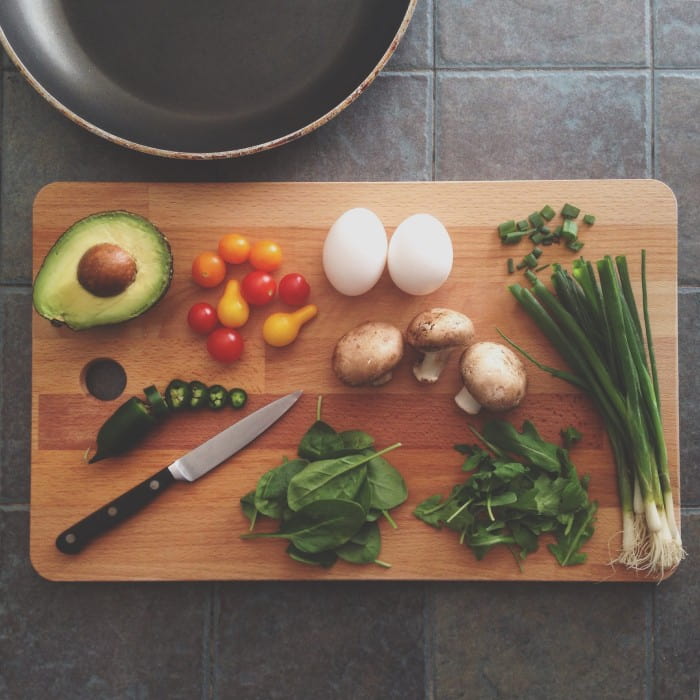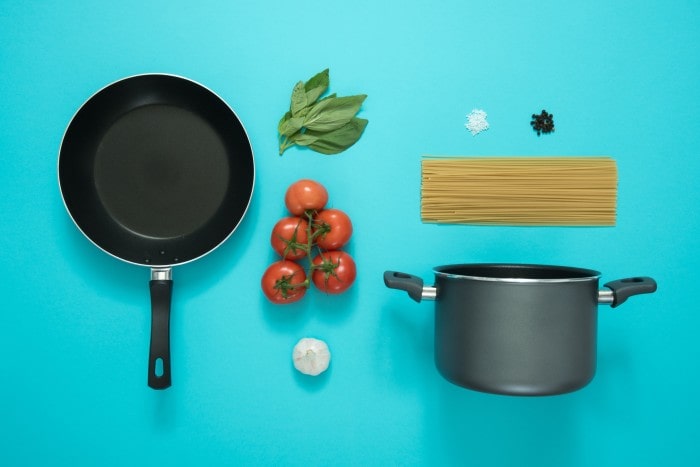
The first thought that comes to mind when you hear about cheap food is the fast-food variety. Those meals are quick, tasty and quite filling. On the other hand, healthy options are always tied up with the notions of expensiveness and are time-consuming.
The many misconceptions surrounding healthy food often influence the eating habits of college students. In a research article published in the Journal of Nutrition and Human Health, 65.3% of surveyed students revealed that they consume processed food on an everyday basis.
Even though students are knowledgeable about healthy eating habits and nutritional requirements, numerous factors such as living in a campus dorm on a limited budget influence their dietary habits.
The first aim is to eradicate the notion that healthy food is not affordable on a student budget. There are many small steps that would lead to remarkable differences in the positive direction in your lifestyle.
Avoid Stress Eating
The most common reason students resort to unhealthy food is the comfort it gives them. It is easy to order a pizza when you are relentlessly trying to finish that assignment.
The results of 2019 study conducted in Saudi Arabia show that students with higher stress levels eat more unhealthy food. As challenging as it might seem, if you feel stressed, it is imperative that you address it right away.
Make sure that you try to do activities that calm your mind and body. It is also recommended to delegate the most stressing assignments to professional academic writers.
This way, you will deal with the anxiety induced by unfinished assignments and tight deadlines. Students can make an essay editing request and turn to experts to help complete urgent college term papers and other projects here – https://essaypro.com/custom-essay.html. Trying to confront any issues that compromise your mental health should always take priority.
Your dietary habits could also make help relieve your stress levels. Here are some suggestions that would help you in learning and enjoying healthy cooking.
Buying the Groceries
Stick to Your Shopping List
A little planning could go a long way when you are in the grocery store. By knowing what you intend to cook, you will have a clear idea of what to buy. This will help in avoiding buying unnecessary groceries. Controlling your impulsive shopping is the first step in eating healthy on a budget.
Storing Fruits and Vegetables
Fruits and vegetable, obviously, fall into the category of healthy. However, if you do not cook or eat them right away, chances are the products will go bad.
If you think you won’t be able to cook regularly with fresh vegetables and fruits, try switching to frozen items. It would still be healthier than fast-food and will last longer.
Get the Necessary Nutrition
Good food does not confine to greens alone. You also need to take sufficient protein-rich food such as poultry, red meat, eggs, and lentils.
Nutritionists also consider Omega-3 fatty acids as beneficial for cognitive skills and overall health. Similarly, it is also important to get your daily dairy intake from food items such as milk, yoghurt or cheese. Opting for the low-fat variety would be a better choice.
Start Cooking
Breakfast
There is no way that you have not heard that breakfast is the most important meal of the day.
Heading out for the day after a rich meal would help you avoid the stomach growling and tiredness during lectures. It is not necessary to cook extravagant breakfast meals. Even yoghurt topped with fruits would make for a tasty yet nutritious meal.
It is also easy to prepare overnight oats, toast bread or eggs every day. You might have to wake up a little earlier, but the effort is worth the energy you will have for the entire day. If you are in a hurry, grab a fruit on the go to get some food intake.
Lunch
As it might be almost impossible to make fresh meals for lunch every day, the best way to do this is by prepping more in advance. Store it in the fridge for the next day, and you will get some spare time next morning.
Simple salad recipes, pasta, noodles, or even soup would make for a rounded meal. If you have more time, experiment with new recipes. There are plenty of lunch ideas that you can try by sticking to your student budget.
Snacks
Snacking is another major reason for students to go overboard with fast food. Chips, burgers, and pizza are all considered snacks when you are craving for it or curbing your hunger. However, healthier alternatives to snacks are also possible.
A simple assortment of nuts, fruits, and even salads could make for delicious and filling snacks. These will also give you an instant boost of energy, unlike fast foods that make you want to sleep right after the meal. The trick for snacks is to make it in bulk so you can carry them with you all the time in small portions.
Dinner
If you think there is no time to prepare dinner at night, let us tell you cooking might serve as a great break from the studies. You will be away from the screen, giving your eyes a much-needed relaxation. You might even come to enjoy it.
Your microwave might be the hero appliance of your dorm room, but that does not have to be a limitation. In fact, you can steam, cook and even grill in many microwave models.
Search the internet for microwave-friendly recipes, and you can even store the leftovers for lunch the next day.
Freeze in Batches
Every day might not inspire you to cook. There is an easier way to approach this. Consider freezing the products.
Try to cook in large quantities, and store different products in batches. By doing this, you also need not worry about the perishable vegetables and fruits after a week. These frozen meals could last over a few weeks or months, depending on the temperature.

Wrapping Up
Now that you read this, there is no excuse for a tight budget keeping you from a healthy meal. The internet has dozens of recipes to help you out.
It is ok to let yourself have favourite greasy, fatty and starchy meals once in a while. As long as it is not your daily routine, you would be doing really well.
